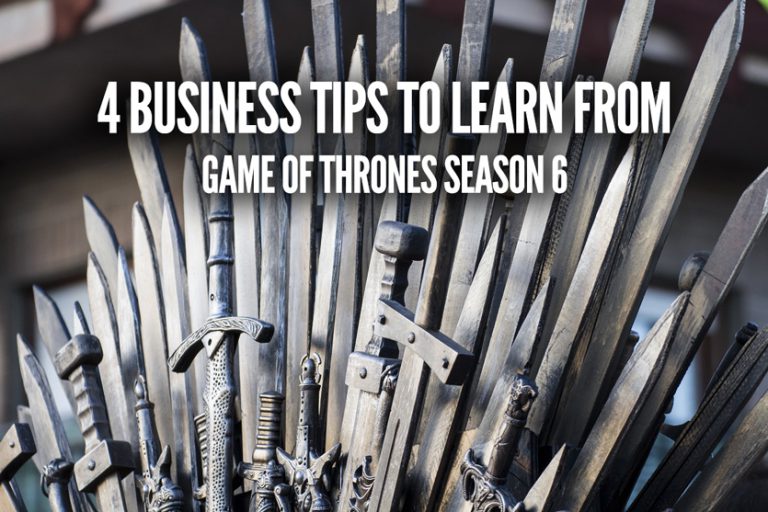You are viewing our site as a Broker, Switch Your View:
Agent | Broker Reset Filters to Default Back to List4 Business Tips to Learn from Game of Thrones Season 6
July 04 2016

I love HBO's Game of Thrones. I also love the novel series, A Song of Ice and Fire, that the show is (loosely) based on. Here's a quick list of relevant business tips we can learn from the recently completed season.
Note: this blog contains spoilers. Read on only if you're completely up to date with the series.
1. Your title does not make you a leader, your actions do
Jon Snow leads the Wildlings and scattered Northern forces in an epic battle against Ramsay Bolton. The latter has been legitimized by King Tommen and is now Warden of the North, while the former is a Night's Watch deserter and is still considered a, uh...an illegitimate child.
Their official titles, however, do not reflect their qualities as leaders. Jon Snow runs headlong into a cavalry charge and volleys of arrows and leads his meager army of misfits to victory. Ramsay Bolton, on the other hand, watches the battle from afar, shoots arrows into his own men and meets his end, imprisoned and alone, at the hands (and paws) of those he mistreated.
Moral of the story? If you want your team to follow you, lead the charge.
2. Having dragons help
Across the Narrow Sea, Daenerys Targaryen and Tyrion Lannister face seemingly overwhelming odds as the masters of Yunkai and Qarth siege her struggling city. The masters have scores of ships laying waste to the city, forcing the duo to discuss terms of surrender.
Apparently, the masters forgot that Daenerys has three gigantic fire breathing monsters at her beck and call. Of course, all of their fancy ships are burned and they're soundly defeated.
Moral of the story? When it comes to your competitors, having something that they don't have (dragons, in this case) is the difference between success and defeat.
3. Be yourself
Arya Stark, the girl formerly known as no one, completes her very long training montage and successfully negotiates her release from the House of Black and White and the Faceless Men.
How does she get away? She accepts who she is. She's not a Faceless Man; she's not a merciless assassin for hire; she's not 'no one.' She's Arya Stark and she's going back to Winterfell.
Moral of the story? Be yourself. Pretending to be someone else is too hard to maintain. Painful, too.
4. If you want to tell your story, do it before someone else does
The writer of the source material, George R. R. Martin, has yet to complete the series' second-to-last book, The Winds of Winter. This delay is a major disappointment to fans of the series, as the first novel, A Game of Thrones, was released in 1996–20 years ago. Fans have been waiting 20 years to get conclusions to several storylines that the show is broadcasting every Sunday.
You may have noticed my snarky comment in the intro that the show is (loosely) based on Martin's A Song of Ice and Fire series. For the most part, the show has been faithful to the storylines in the first five novels. However, as the show moves along, several storylines and characters are being merged or altered or removed altogether. These changes are a necessary evil for the show's producers, as they need to get the story to its conclusion in the next two seasons. They don't have 10,000 pages and 20 years to detail Jaime's redemption arc; they have 10 episodes a season and two more years to get it done.
Bottom line, the show is telling an entirely different story than the novels. Book readers and show watchers alike are now getting the conclusion to some long-brewing storylines without any of the in-depth character development Martin is known for. They're getting the climax, but not the journey. But because Martin can't finish his novels, they're not getting his version of his story. This must be difficult for the author to accept. His life's epic work, 20 plus years in the making, has been adapted to television and completely and irrevocably changed in the mind of the general public.
Moral of the story? If you want your story to be told, then tell it before someone else does. Your company has a brand and your brand has a story. You are the only one who should define what that story is.
To view the original article, visit the Lone Wolf blog.









